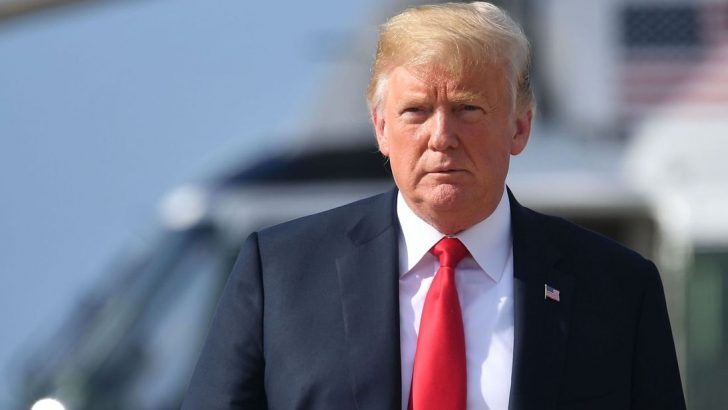The people of Doonbeg seem to have no objection to Mr Trump’s visit as a businessman
There are protests planned when Donald Trump visits his golf course at Doonbeg, Co. Clare, later this month. Richard Boyd Barrett, the People Before Profit TD, has announced that he will be leading the demonstrations against Mr Trump’s presence, because the probable American Republican presidential candidate has shown himself to be “racist, sexist and Islamophobic”.
Pope Francis himself might well agree – he has fiercely criticised Trump’s disparaging and unkind attitudes to Mexicans; and rightly so.
As we know, Enda Kenny and Leo Varadkar have also condemned Donald Trump for racist remarks – Mr Kenny also called Trump “dangerous”. They will not be putting out the red carpet, this time, when the Trump airliner touches down at Shannon.
But the people of Doonbeg, seem to have no objection to Mr Trump’s visit as a businessman. They acknowledge the many millions of Euros he has invested in Trump International Golf Links and Hotel, the environmental sea-wall against the Atlantic he plans to build, and the employment opportunities he has provided.
Tommy Commerford of the Doonbeg Fishman’s Alliance said he had “no problem” with Trump being in West Clare, and Caroline Kennedy, owner of the local Igoe Inn – she also runs the Doonbeg Jazz Festival – says he’ll be “welcome with open arms”.
Judgement
So, whose judgement is best on this delicate issue – the politicians who have spoken, or the people of Doonbeg?
Much of what politicians say for public consumption is what is known, now, as ‘virtue signalling’. The message of their statements often means: “Look what a compassionate, high-thinking and virtuous person I am! I condemn racism, sexism and Islamophobia.” (Wasn’t there someone in the New Testament, described as being constantly at the front of the temple, virtue-signalling to everyone what models of moral conduct they were?)
But the Doonbeg people aren’t concerned with ‘virtue signalling’; they’re thinking of more basic, bread-and-butter issues, such as keeping their resort viable.
Doonbeg had seldom been heard of, outside of Ireland, until Donald Trump purchased it, making it, according to Condé Nast Traveler “the Number One [golf] resort in Europe”.
Bread-and-butter doesn’t inevitably come before ethical values. But the people of Doonbeg surely have a greater entitlement to speak on this particular question than the virtue-signalling Richard Boyd Barrett or Enda Kenny.
New Bridgettine saint
I’m a great admirer of St Birgitta of Sweden (1303-1373), a formidable mother of eight children who travelled all over Europe and the Holy Land in the 14th Century, and, in widowhood, founded the Bridgettine order. And now, more than 600 years after Birgitta’s canonisation, there’s a new Swedish-born saint, Elizabeth Hesselblad, a nun who hid Jews in Rome during the Second World War.
St Elizabeth is also seen wearing the habit and wimple of the same Bridgettine order as her countrywoman. She had been a Lutheran nurse who converted to Catholicism while in America.
By the way, although she would never claim sainthood, the singer Delia Murphy, also bravely helped Jews and other fugitives escape from the Gestapo while in Rome, and it would be nice if the Irish state could honour her posthumously for that.
Downside to Ali’s self-belief
Muhammad Ali was a brilliant boxer, but possibly self-destructive when he continued to take on opponents when he was past his best. “Wiser counsels would have forced his retirement from boxing five years earlier,” wrote an obituarist in the Daily Telegraph. “But then wisdom had never played any part in Ali’s extraordinary career. The valour and the fathomless self-belief that drew him to his doom were precisely the qualities which had propelled him to the summit.”
Yes: outstanding qualities can be the same ones that can prove destructive.


 Mary Kenny
Mary Kenny Former president of the United States, Donald Trump.
Former president of the United States, Donald Trump. 